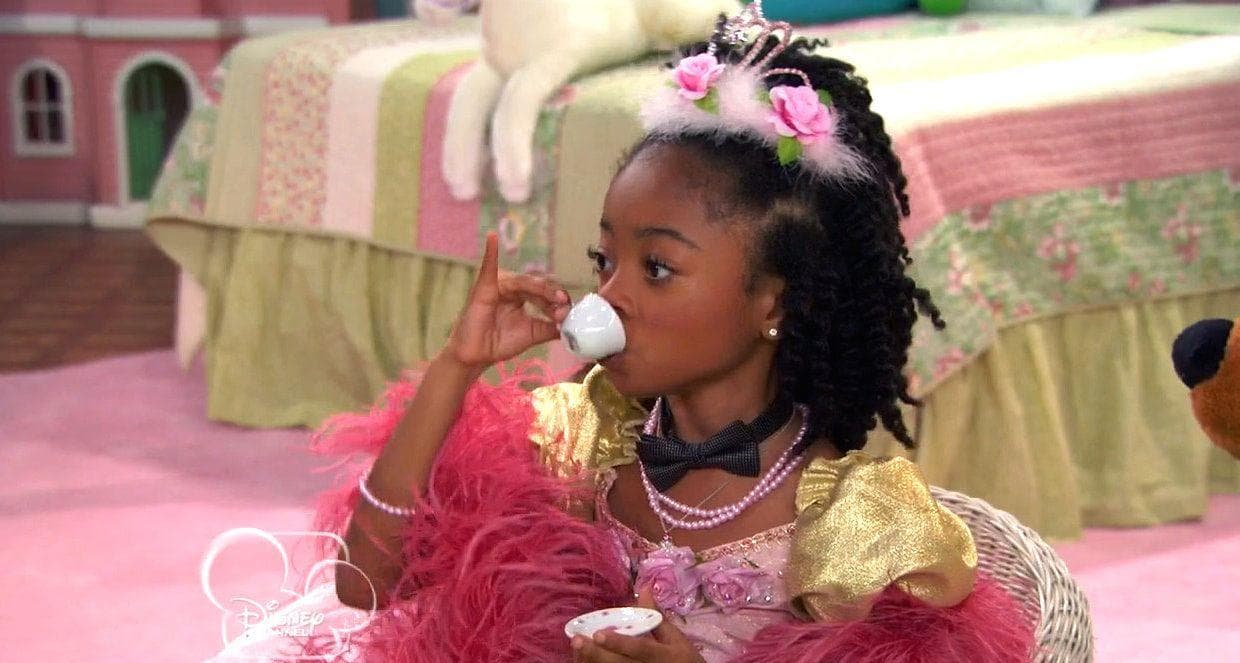-
(#12) Rebecca Bunch
TV Show: Crazy Ex-Girlfriend
Despite its terrible title, Crazy Ex-Girlfriend is about as heartwarming as it gets. And one thing that makes it really stand out from the crowd is Rebecca’s struggles with anxiety and depression. Rachel Bloom, who portrays Rebecca, isn’t afraid to get candid about her battle with depression either, so there’s no wonder the show got a few things right, despite often being overlooked as a goofy musical comedy.
The show romanticizes Rebecca’s “Sexy French Depression,” but also gets real in “You Stupid Bitch.” “This was one of the most personal songs for me, because this is how I actually think about myself when I’m at my most depressed,” Rachel says.
How Accurate Is It?
While Rebecca does deal with mental health issues, the diagnosis isn’t always clear. This isn’t such a bad thing, since it can make her even more relatable. “A lot of that stuff is all mixed up together, but sure she could be bipolar, she could have generalized anxiety disorder, depression is comorbid with everything. ADHD is big with addiction and lack of impulse control.
It's a mistake to think that she has a specific diagnosis, in my opinion. Anybody who finds their life completely empty, unhappy and without meaning can end up doing some weird things, especially for love. By latching onto a specific disorder, you might miss how Rebecca has universal emotional traits”, one Reddit user writes.
Another one thinks: “I too feel like I can relate to Rebecca. Moments like "You Stupid Bitch" and "Sexy French Depression" in particular; the kind when she's just wallowing in self-pity without any real awareness of what got her in the situation. Or how she expects Josh to fix all her problems with the four-Josh Boy-band. While I'm nowhere near as intensely troubled as she is, I see a lot of parallels between her and me. I've never seen that kind of similarity with any other TV show, movie or even book.”
-
(#3) Jessica Jones
- Marvel Universe
TV Show: Jessica Jones
As a show about trauma, Jessica Jones doesn’t shy away from dealing with the consequences of going through something awful. The titular character of the show isn’t experiencing what you might call a "speedy recovery" after her time with Kilgrave. She’s been raped and controlled by the villain, so she’s now suffering from severe (and diagnosed) PTSD. Jessica may be a super-human, but she’s emotionally fragile and does her best to cope with the aftermath of Kilgrave using her as his plaything.
Coping in this case includes setting up a support group for Kilgrave’s victims, repeating a mantra she learned from a therapist, turning to alcohol to dull her senses, and, eventually, confronting her rapist. Even super-humans are susceptible to the effects of trauma, and Jessica’s illness is much more than a justification for her to become a gritty and dark hero.
How Accurate Is It?
For the most part, people tend to agree that Jessica Jones does a good job at portraying PTSD and the devastating effects of dealing with a trauma. “I had a very difficult time watching the pilot episode. It makes me very uncomfortable because of how well they are portraying PTSD symptoms. It's a good thing, but still hard to watch,” one Reddit user writes.
Another user agrees, proclaiming: “Hands down, Jessica Jones is my favorite Marvel endeavor to date (and I'm a huge fan of the Marvel franchise). I really can't believe how well they captured the disorder in all its many facets (I really identified with the substance abuse as a medicator for symptoms), and yet the story is one of hope, of persevering over near-impossible circumstances."
The only thing that seems to annoy viewers is the way in which she finds the strength to eventually recover. In one fan's opinion, “[taking] back your control isn’t one moment that lets you kill your demons. It’s screaming back at them every time they come out to play. It’s having your friends and family whisper the truth in your ear when all you can hear is lies. In my mind, for Jessica to have defeated Kilgrave, she needed to have stopped hating herself first. And she can’t do that alone or by a sheer act of willpower. That’s a lot harder than killing the bad guy."
-
(#1) Carrie Mathison
- Homeland
TV Show: Homeland
Besides her ugly crying and infinite badassery, what makes Carrie stand out in the TV world is her struggle with mental illness. As a CIA officer dealing with bipolar disorder, her illness is an important part of what makes her who she is. That’s obvious from the very first episode of the show, when we find out she’s hiding her illness from the CIA because she’s afraid she’ll get fired. As the series progresses, we get to witness Carrie not only with her condition under control due to a strong support system and medication, but also off her medication and experiencing psychotic episodes.
While Carrie is so much more than her disorder, the illness is a huge part of her life, and seeing her deal with the symptoms helps viewers better empathize with and understand her complex character.
How Accurate Is It?
When it comes to Homeland’s portrayal of bipolar disorder, some viewers praise the show for its accuracy, while others think it sensationalizes the illness for the sake of melodrama.
Psychology Today, for instance, writes that the depiction of mental illness is pretty accurate: “What makes Homeland work so well in terms of its psychiatric realism, is that Carrie’s illness is an aspect of her character and a realistic part of the story, rather than her illness being the story and inaccurately portrayed. This works because in real life people, who suffer from mental illnesses like bipolar disorder, can and do lead lives that are normal and productive, rather than sensationalized and distorted.”
Meanwhile, a GQ article calls out the show’s BS: “Homeland’s highs and lows are frequently about the viewer’s opinion of Carrie at that moment, not necessarily Carrie’s state of mind. You have to wonder how much interest Homeland really has in bipolar disorder if it’s not a narrative goldmine.”
On Reddit, viewers have varied opinions, as well. One of them thinks the show does a great job: “I grew up in a household with a bipolar parent. And I can absolutely tell you that, from my perspective at least, this show, and Claire Danes both have f*cking nailed what living with Bipolar disorder is like. Both for the sufferer and those in that person's immediate circle.” However, another user says the portrayal has its faults: “The Manic episodes that she's experienced (definitely in Season 2) were pretty consistent with reality, but here Depressive episodes are few and far between and played very monochromatically. Definitely not the range that even moderate m/d would present.”
-
(#8) Sherlock Holmes
- Sherlock, The Hound of the Baskervilles, Sherlock Holmes, The Red-Headed League, Comedy Playhouse, Elementary, Terror by Night, Murder by Decree, The Woman in Green, Sherlock Holmes and the Secret Weapon, Sherlock Holmes and Dr. Watson, O Xangô de Baker Street, The Adventure of Sherlock Holmes' Smarter Brother, Sherlock Holmes and the Leading Lady, Sherlock Holmes 3, Sherlock Holmes: A Game of Shadows, Sherlock Holmes, Crazy House, I Am Bob, The Triumph of Sherlock Holmes, Without a Clue, The Masks of Death, Sherlock Holmes and the Deadly Necklace, Sherlock Holmes in Washington, The Adventures of Sherlock Holmes, Silver Blaze, Sherlock Holmes and the House of Fear, The Great Mouse Detective, The Spider Woman, The Return of Sherlock Holmes, The Seven-Per-Cent Solution, Sherlock Holmes in New York, Sherlock: Case of Evil, Incident at Victoria Falls, Sherlock Holmes, Sherlock Holmes and the Voice of Terror, Sherlock Holmes Faces Death, The Scarlet Claw, Sherlock Holmes and the Case of the Silk Stocking, The Private Life of Sherlock Holmes, The Speckled Band, Pursuit to Algiers, The Pearl of Death, The Sign of Four, Young Sherlock Holmes, The Hound of the Baskervilles, The Hound Of The Baskervilles, Dressed to Kill, Sherlock Holmes, The Missing Rembrandt, 1994 Baker Street: Sherlock Holmes Returns, The Sleeping Cardinal, Sherlock Holmes Universe
TV Show: Sherlock
“I'm not a psychopath, I'm a high-functioning sociopath,” Sherlock says a couple of times during the acclaimed BBC series. He’s a brilliant, but antisocial consulting detective, so his assessment of his very own mental health shouldn’t surprise anyone. However, as we’ve seen a few times over course of the show, the character is also capable of true empathy and altruism, which is why thing can get confusing.
Sure, Sherlock has trouble with relationships, and one could argue that Watson is his only real friend. But Sherlock shows Watson intermittent kindness, and the series makes it pretty obvious that he cares about others as well. And yet, it seems important for the detective to be recognized as a sociopath, albeit a high-functioning one.
How Accurate Is It?
Well, doctors tend to agree: Sherlock’s not a sociopath. “It’s not that he doesn’t experience any emotion. It’s that he has trained himself to not let emotions cloud his judgment - something that he repeats often to Watson,” psychologist Maria Konnikova thinks. “I see the modern Sherlock as portrayed by the BBC as more very high functioning autistic than sociopathic. He never seemed sociopathic to me,” a Quora user chimes in.
However, there are a few viewers who buy into the premise that Sherlock has all the traits of a sociopath. On Sociopath World, a user comments: “This modern Sherlock Holmes does fit the symptoms attributed to a sociopath. Including an apparent lack of guilt and emotion.”
-
(#4) BoJack Horseman
TV Show: BoJack Horseman
Who would have expected to get an accurate portrayal of clinical depression from an animated show? And yet, BoJack Horseman, with its cult following and complex storylines, may just be the saddest funny show ever.
That’s mainly because it allows its main character to succumb to his demons more often than it lets him enjoy his success. The creators don’t tell you flat-out that BoJack is depressed. Instead, they let viewers peel back the various layers of the deeply unhappy hero until there’s no doubt that he’s struggling with mental illness. As they put it, “the goal was never like, let's really create an expose, let's really investigate this kind of thing, let's diagnose BoJack in a certain way. I think it was more about just trying to write this character truthfully, and taking him seriously.”
During the show, BoJack is a has-been actor who collapses into a black hole of alcoholism, depression, narcissism, and self-destruction. He struggles to get better and fails over and over again, proving that recovering from mental illness isn’t only about willpower. It’s about having a strong support system, making better decisions on a daily basis, and getting help. We don’t see BoJack lying around all day. Instead, we see him struggling to figure out how to overcome his shortcomings.
How Accurate Is It?
The majority of BoJack Horseman fans and critics have praised the way in which the show tackles depression.
“I never saw my depression on TV or in movies. […] So when I finally really saw depression as I knew it, a direct reflection of my illness, not an exaggeration and not an underplay, I didn't quite know how to feel. This is so intense, I thought. This is so necessary. But, as the show progressed, I began to notice not only the truth about depression depicted in BoJack Horseman, but the behaviors as well. I started asking myself, more and more often: Do I do that? Is that me?” Rosey writes for XO Jane.
“It is nice to see a show portray how I feel though. Self-sabotage is a recurring theme in my life and season 2 was just perfect,” a Reddit users agrees. Fans even found other disorders portrayed in the series. “I firmly believe BoJack suffers from adult ADHD. I have it myself, as well as my dad and boyfriend having it, so I am very familiar with the symptoms and presentation,” another Reddit user points out.
-
(#7) Max Braverman
- Parenthood
TV Show: Parenthood
Parenthood was beloved for a plethora of reasons, but one of the most important things the show did was talk openly about autism and showcase how a kid with Asperger’s Syndrome navigates everyday life. Heartbreaking at times, the story didn’t only show Max’s struggles. It also focused on how the entire family was affected by Max’s disorder.
Executive producer Jason Katims has a son with Asperger's, so the fact that the story felt incredibly raw at times shouldn’t be surprising. We get to witness Max’s evolution from the first time his parents figure out there’s something wrong until he becomes a teen, and each developmental stage comes with its own set of struggles. By telling Max’s story, Parenthood has depicted a journey never before seen on network television.
How Accurate Is It?
Generally speaking, the show’s portrayal of living with Asperger’s Syndrome has been praised by critics and viewers alike. “As someone who felt like an outsider to the world of autism, Max helped me normalize my own experiences with my now brother-in-law. He showed me ways to relate to Michael, and affirmed that simply because Michael didn’t want to hug me or ask me about my life, it didn’t mean that he didn’t love me,” one viewer wrote.
But, since Max is only one character, not everyone on the autism spectrum can relate. “He's probably plenty accurate in some ways for a specific type of person on the spectrum. The problem is that it's a stereotype. It's sort of like asking how accurate a depiction of gay men are Cam and Mitch on Modern Family. Autistic people are people too, and people are unique. Some autistic people are young boys with very similar autistic traits to Max's, but a whole lot of them aren't,” one Redditor thinks.
At the same time, others didn’t like how rude Max becomes as the series progresses. “I'm a big fan of the NBC TV show Parenthood, in no small part because of the Max Braverman character, who has Asperger’s (the actor himself does not). At the beginning of the show, I felt I could relate to the behavior and the challenges. Now, however, I feel his rude behavior, on most occasions, makes him seem unkind.”
New Random Displays Display All By Ranking
About This Tool
In the history of television, mentally ill roles have been reduced to villains, victims, or funny harlequins. In recent years, this type of character has gradually become a positive protagonist, and the character's illness is often used to help the plot reach its peak or as the key to uncovering unanswered mysteries. But does the performance of the actors help ordinary people understand the mentally ill?
Many outstanding actors vividly portray real and accurate mental patients, just like people can get all the crazy energy. There are more interesting mentally ill TV characters over the years who have broken stereotype images. The random tool lists 12 famous TV characters with mental illness you did not know.
Our data comes from Ranker, If you want to participate in the ranking of items displayed on this page, please click here.
















